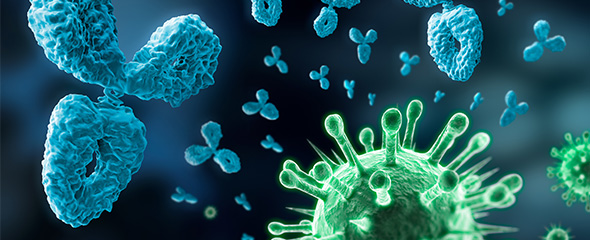How long and how well does the human immune system remember an encounter with SARS-CoV-2 or an encounter with at least fragments of the virus, as is the case with vaccination? One year? Two years? And during that time, how well is one still protected from infection with the coronavirus? These questions cannot yet be answered conclusively because SARS-CoV-2 has only been known for a little over a year. Some recent studies have shown that at least six months after infection or vaccination, the majority of people still have antibodies and T-cells that protect against re-infection or greatly attenuate the course of the disease.
Prof Carlos Guzmán, head of the department "Vaccinology and Applied Microbiology", comments on these studies in a recent article on the website of the Helmholtz Association of German Research Centers. He also explains the contribution of different cells of the immune system to protect us from the virus - and also from new variants.
To the article on the website of the Helmholtz Association

